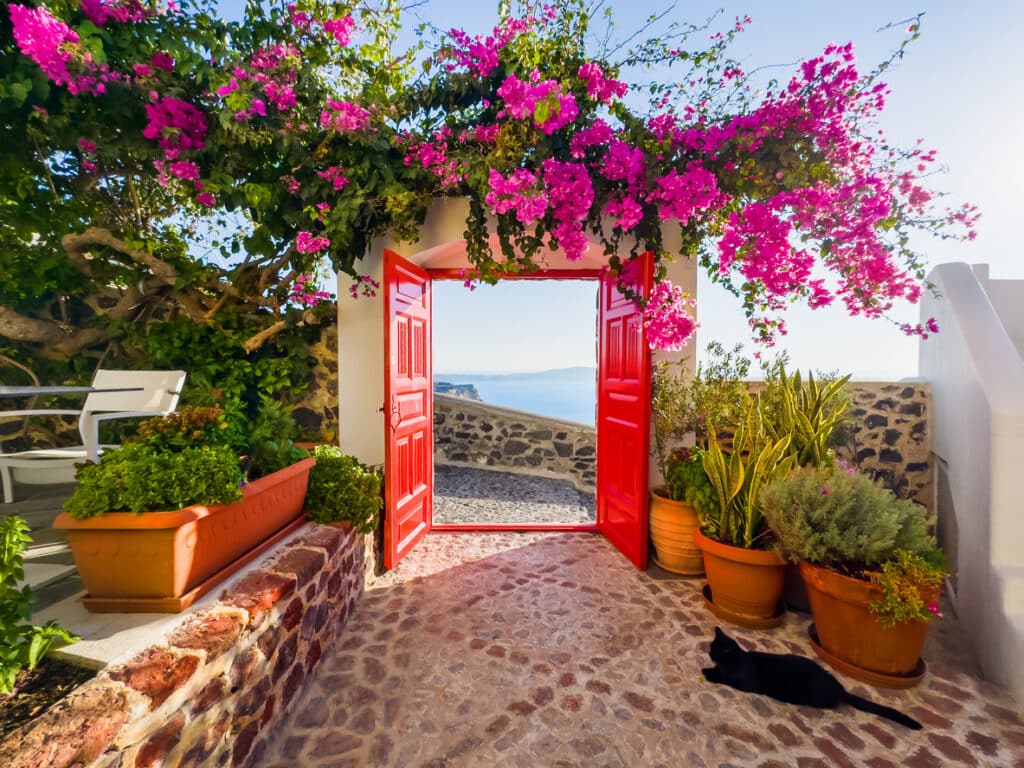The answer is a resounding yes—but as with any major financial decision, there’s a lot to consider before taking the plunge. From legal rights and banking requirements to taxes, hidden fees, and the realities of the Portuguese property market, this guide will walk you through everything you need to know. Whether you’re seeking a vacation home, a rental investment, or a new place to call home, let’s explore what it really takes to buy property in Portugal as a U.S. citizen.
Legal rights and restrictions for U.S. citizens buying property in Portugal
Let’s start with the good news: there are no legal barriers preventing Americans from buying property in Portugal. You don’t need to be a resident or have a special visa to purchase real estate. In fact, Portugal is known for its welcoming attitude toward foreign buyers, and the process is relatively straightforward compared to many other European countries.
Key points to know:
- No citizenship or residency required: Americans can buy property in Portugal as individuals or through a company.
- No restrictions on property types: You can purchase apartments, houses, land, or commercial properties.
Banking requirements and opening Portuguese bank accounts
To buy property in Portugal, you’ll need to open a local bank account. This is a crucial step, as all property transactions must be conducted in Euros through a Portuguese financial institution.
What you’ll need:
- NIF (Número de Identificação Fiscal): This is your Portuguese tax number, required for almost all financial transactions. You can obtain it at a local tax office or through a legal representative.
- Valid passport: Proof of identity is essential.
- Proof of address: This can be from your home country.
- Source of funds documentation: Portuguese banks are required to comply with anti-money laundering regulations, so be prepared to show where your funds are coming from.
Opening a bank account:
Most major Portuguese banks are accustomed to working with foreign clients. The process can often be started remotely, but you may need to visit a branch in person to finalize the account. Some Americans choose to work with international banks that have a presence in Portugal for added convenience.
Property purchase costs, taxes, and hidden fees
Buying property in Portugal involves more than just the purchase price. It’s important to budget for additional costs, taxes, and fees to avoid surprises.
Main costs to expect:
- IMT (Property Transfer Tax): This is a sliding scale tax based on the property’s value, ranging from 1% to 8% for residential properties.
- Stamp Duty (Imposto do Selo): Typically 0.8% of the purchase price.
- Notary and registration fees: Usually between €1,000 and €2,000, depending on the property and region.
- Legal fees: Hiring a lawyer is highly recommended and usually costs 1%–2% of the purchase price.
- Real estate agent fees: Typically paid by the seller, but always confirm.
Hidden or ongoing costs:
- Annual property tax (IMI): Ranges from 0.3% to 0.8% of the property’s tax value.
- Homeowners association fees: If you buy an apartment or property in a managed community.
- Utilities and maintenance: These can vary widely depending on the property type and location.
💡 Pro Tip:
Always request a full breakdown of costs before signing any contracts. A reputable lawyer or buyer’s agent can help you navigate the process and avoid unexpected expenses.
Best regions and property types for American investment
Portugal offers a diverse range of regions and property types, each with its own appeal for American buyers. Your choice will depend on your goals—whether you’re seeking a vacation home, rental income, or a new lifestyle.
Popular regions for Americans:
- Lisbon: Portugal’s vibrant capital offers historic charm, modern amenities, and strong rental demand.
- Porto: Known for its culture and wine, Porto is increasingly popular with expats and investors.
- The Algarve: Famous for its beaches and golf courses, the Algarve is a top choice for retirees and vacation home buyers.
- Silver Coast: Less crowded than the Algarve, this region offers beautiful scenery and good value.
- Central Portugal: For those seeking tranquility and lower prices, rural areas and small towns can be very appealing.
Property types:
- Apartments: Ideal for city living or short-term rentals.
- Villas: Popular in coastal and rural areas, often with private pools and gardens.
- Historic homes: Portugal has many beautifully restored properties, though these may require more maintenance.
- New developments: Modern amenities and energy efficiency, often in urban or resort settings.
💡 Pro Tip:
Visit different regions, talk to local agents, and consider your long-term plans. Rental yields, lifestyle, and resale potential can vary significantly by location.
Rental income potential and property management considerations
Many Americans buy property in Portugal with the intention of generating rental income, either through short-term vacation rentals or long-term leases. Portugal’s popularity as a tourist destination means there’s strong demand, especially in Lisbon, Porto, and the Algarve.
Rental income basics:
- Short-term rentals (Alojamento Local): These can be lucrative, but require a special license and are subject to local regulations. Some cities have restrictions on new licenses, so check before you buy.
- Long-term rentals: Offer more stability and less regulatory complexity, but typically lower yields than short-term lets.
Property management:
If you don’t plan to live in Portugal full-time, hiring a local property manager is highly recommended. They can handle bookings, maintenance, cleaning, and compliance with local laws.
Tax implications:
Rental income from Portuguese property is taxable in Portugal, and you’ll need to report it on your U.S. tax return as well. The U.S.-Portugal tax treaty can help avoid double taxation, but professional advice is essential to stay compliant and optimize your tax position.
Market risks and whether Portugal property investment makes sense
While Portugal’s property market has seen impressive growth in recent years, it’s important to approach any investment with a clear understanding of the risks and opportunities.
Current market trends:
- Rising prices: Demand from international buyers has driven up prices, especially in Lisbon, Porto, and the Algarve.
- Regulatory changes: The government has tightened rules on short-term rentals and Golden Visa eligibility in some areas.
- Economic factors: Interest rates, inflation, and global economic uncertainty can all impact the market.
Is it a good time to invest?
Portugal remains attractive for its quality of life, stable political environment, and strong rental demand. However, competition is fierce in popular areas, and price growth may slow. If you’re buying for lifestyle reasons or long-term investment, Portugal can still make sense—but do your homework, seek local advice, and be realistic about returns.
Balanced perspective:
Buying property abroad is a big step, and while Portugal offers many advantages, it’s not without challenges. Take your time, consult with experts, and make sure your decision aligns with your personal and financial goals.
Ready to make your Portugal property dreams a reality?
Buying property in Portugal as an American is entirely possible—and with the right guidance, it can be a rewarding experience. But navigating the legal, financial, and tax complexities can feel overwhelming. That’s where we come in. Our team of U.S. expat tax experts is here to help you understand your obligations, optimize your investment, and avoid costly mistakes. Let us be your trusted partner on your journey to Portuguese property ownership.
Frequently Asked Questions
-
Can Americans buy property in Portugal without residency?
Yes, Americans can buy property in Portugal without being residents. There are no restrictions based on nationality or residency status.
-
What taxes do Americans pay when buying property in Portugal?
Buyers pay property transfer tax (IMT), stamp duty, and annual property tax (IMI). Rental income is also taxable in Portugal and must be reported to the IRS.
-
Do Americans need a Portuguese bank account to buy property?
Yes, a Portuguese bank account is required for property transactions. You’ll also need a Portuguese tax number (NIF).
-
Can Americans get a mortgage in Portugal?
Many Portuguese banks offer mortgages to non-residents, including Americans, though terms and down payment requirements may differ from U.S. standards.
-
Is rental income from Portuguese property taxed in the U.S.?
Yes, Americans must report worldwide income, including Portuguese rental income, on their U.S. tax return. The U.S.-Portugal tax treaty can help avoid double taxation.
-
Is buying property in Portugal a good investment for Americans in 2025?
Portugal remains attractive, but market conditions are evolving. It’s important to research thoroughly, consider your goals, and seek professional advice before investing.

 Connect on LinkedIn
Connect on LinkedIn

